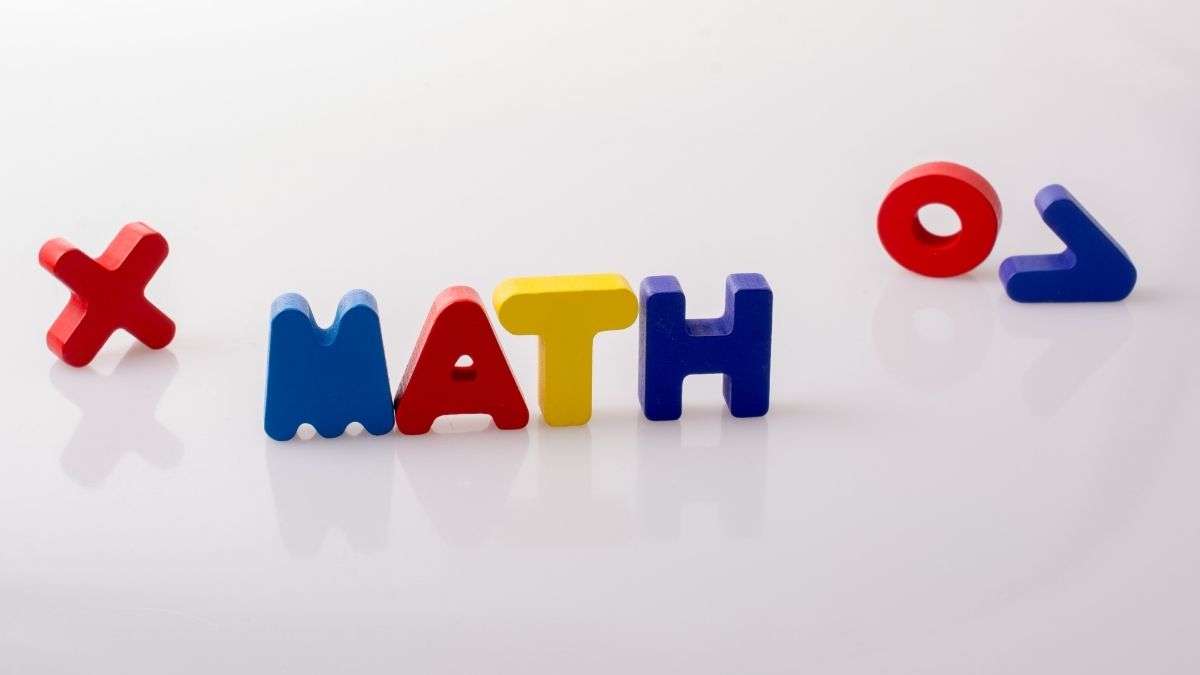Maths skills are fundamental to understanding science as they allow students to make sense of qualitative data.
Students are expected to display data in different ways and then use it to draw conclusions and make predictions. But many students are scared of maths and do not even attempt questions with a mathematical basis. How can we encourage students to give maths a go?
One of the issues students face is that they compartmentalise their learning and feel like they can’t possibly use the skills and tips they have learnt outside of the science classroom. Making explicit links to where students have experienced certain maths skills before makes the learning deeper and more ingrained and can give students a tool kit to approach the questions.
Research suggests that if students think they will do well in science questions with a maths focus, they will have less anxiety about trying these styles of questions. The same research also suggests that older female STEM students are more likely to suffer mathematical anxiety.[1]
Confidence comes from practise and from feeling rewarded by getting the right answer. Give instant feedback with low stakes tests such as recalling units of key variables and simple manipulation of equations. If we as teachers can make students feel more confident about tackling questions, they are more likely to try this type of question in an exam.
Maths Skills example: Speed
Speed is in the GCSE ‘Forces and Motion’ topic but is unlikely to be students’ first experience of the concept. Students will have also encountered speed in their study of measurement in Year 6 maths, as well as in the Key Stage 3 Science and Maths National Curriculums, where students are expected to calculate speed. Planning links in our lesson to draw on past learning helps to secure knowledge and make students feel confident.
It is important to model answering mathematical questions, so always give a worked example and make explicit the steps that you go through to answer the question. For weaker students, you could provide a proforma with the steps written out that they can fill in.
If possible, it is worth having a collaboration meeting with your schools’ Maths department. You could give them some science questions to tackle when they are studying the relevant topics in KS3 (i.e. speed). It might be worth trying to teach similar topics at the same time, using similar techniques. This will re-enforce the examination technique to decode the question and boost the students’ confidence in trying these questions.
Add a fun mathematical twist to your lessons by…
- Asking students to calculate the mean, median and mode of colours of Smarties in a packet
- Asking students to complete a Hooke’s law practical, then using their graphs as calibration curves to determine the mass of a bag of sweets
- Asking students to use polystyrene balls and stick tac to model states of matter
How much of the GCSE Science examination is down to maths skill?
In the AQA GCSE suite of Sciences, around 10% of Biology marks, around 20% of Chemistry marks, and around 30% of Physics marks are given to mathematical skills.
For the combined sciences, a minimum of 20% of marks will test mathematical skills. This comprises of 3.3% in biology papers, 6.7% in chemistry papers and 10% in physics papers.
Top tops for systematically answering maths-based questions
- Read the question slowly, underlining any numbers
- In a physics exam, look through the formula sheet and pick the formula that has just one piece of information missing and use this to answer the question
- If you can’t get an answer but you know the unit that the answer is measured in, write that down
- Re-read the question and make sure that you have supplied the answer to the correct precision
Reference [1]: https://stemeducationjournal.springeropen.com/articles/10.1186/s40594-020-00246-z
Sam Holyman is Second in Science at Aylesford School in Warwick, and formerly West Midlands ASE President. She is also the author of a number of best-selling science textbooks for KS3 and GCSE.
A keen advocate of innovative teaching and learning, Sam was nominated in the Teacher Scientist category for the Science Council’s 100 leading practising scientists, is a Chartered Science Teacher, and has recently been awarded the Lead Facilitator CPD Quality mark.
With explicit support for developing maths skills confidence, including plenty of practice opportunities, Oxford Smart AQA GCSE Sciences brings GCSE specification support up-to-date and ready for the classroom-of-today. Print and digital resources, via Kerboodle, provide exceptional time-saving support and give students the knowledge, skills and confidence to achieve their learning goals.


